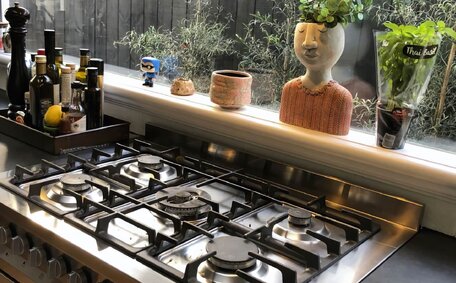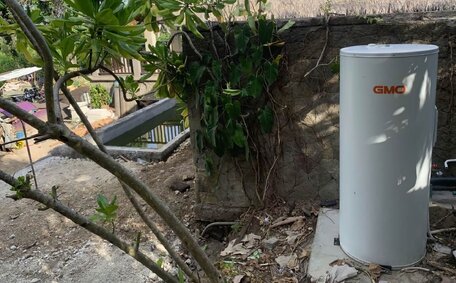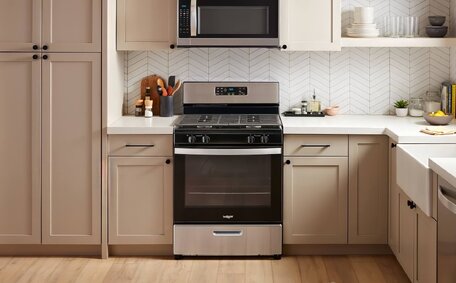
Financial Benefits of Natural Gas
Natural gas offers many financial perks over other energy sources. It burns cleaner and costs less than alternatives, helping lower monthly bills.
Read MoreConfronted with an issue in your drain that signals a blockage rather than a simple flow problem translates to grappling with a scenario no homeowner relishes. Drain blockages occur when debris, grease, soap residue, or other materials accumulate inside pipes and restrict the flow of water. Left unchecked, clogs can cause backups, flooding, and costly plumbing repairs.
Recognising signs your pipes are blocked by debris is key to minimising damage and restoring your system efficiently.
This article will address signs your sewer drain or other lines may display when a clog is developing. We’ll also provide tips to help identify blocked areas in your plumbing, perform preliminary checks yourself, and outline when to call a professional plumber for assistance.
After I called in a professional to take proactive measures and prompt responses, it saved a lot of potential hassle by ensuring the drain remained clear, thwarting minor clogs from ballooning into major obstructions.
Encountering hindered water flow might prompt you to consider if there’s blockage, using a plunger first – this is often the best way to tackle minor obstructions on your own. Taking initiative can take the edge off future plumbing catastrophes, so catching even the subtlest hint of a blocked drain is critical to forestall exorbitant repair bills.
A sink, shower or toilet that is draining slowly often presages the signs blocked drain predicament that’s all-too-common as an early warning. If you notice water draining slowly or starting to back up, this often indicates there is a partial blockage in your plumbing system.
Need to make sure any blockages in your pipes are swiftly addressed, which a plumber can help resolve, as various materials like debris, grease, and hair can lead to slow drainage by constricting the fluid’s pathway. Employing a plunger or concocting a mix of baking soda and hot water can secure same day service for minor drain blockage, assisting in the swift flush of minor clogs.
Without prompt action, recurring clogs deepen, manifesting signs of blocked drains to a point where water should never struggle to navigate through your system. Employ a strategy of pouring hot water down your bath or shower drain, letting it cascade for minutes, to gauge if it effectively dislodges any nascent clogs.
Nevertheless, if these attempts fail to restore water flow, it’s prudent to heed the warning signs and call a plumber, insinuating a serious blockage that calls for expert remediation. Prompt attention to your blocked drain forestalls additional backups and guarantees clear passages, avoiding the usual heralds of extensive, future repairs.
Slow drains pipes tend to deteriorate further setting the stage for added complications if ignored, hence it is wise to summon a plumber swiftly to remedy the lacklustre flow.
Should you hear a gurgling sound emanating from your pipes, take heed as it hails the early possibility of an encroaching blockage. This noise is caused by air bubbles, which it’s a sign they are working their way through, struggling to drain away as water slowly backs up behind the obstruction.
Gurgling occurs when the normal flow of water is disrupted by accumulated gunk, grease, hair and other debris. Impeded drainage leads to air pressure accumulation behind the clog, which might force air bubbles through the gaps, causing audible sounds that indicate the clear blockage necessity.
Pay attention to new or peculiar noises from your drains or pipes, as these signs can indicate stagnant water accumulating behind a blockage. As gurgling often escalates in volume with the worsening blockage, treat it as a sign to promptly intervene. Try using plunger methods like boiling water or drain cleaner as a first step to dislodge the clog.
But if the noise persists, it’s time to call a professional plumber who can inspect your pipes and remove obstructions, especially if there are foul smells coming your way from the drains.
When swift action is taken at the first gurgle, dealing promptly with minor clogs in your drains can save a lot of hassle and expense from extravagant repairs down the line. Let gurgling sounds be your cue to take action; addressing it quickly will likely lead to the outcome where you was very happy with a smoothly flowing plumbing system.
A foul smell emerging from your sink and bath fixtures often warns you might end up dealing with a blocked drain. These unpleasant smells are a clear sign blocked drain is occurring, caused by waste buildup that starts festering when water can’t drain properly.
As debris piles up, one of the most common causes, this can often result in blocked drainage pipes, trapping sewage inside the line. Bacteria then accumulate and digest the stagnant mess, releasing smelly gases like hydrogen sulphide and ammonia that waft back up through your drains.
Bad drain odours are a clear indicator that a blocked drain can be present deeper in your sewer line that requires professional attention. If the blockage isn’t cleared, bad smells coming from your drains can become more serious, allowing sewer gases to permeate your property and release harmful methane and carbon monoxide.
Don’t dismiss the foul odours wafting from your drains or washing machine, as they could herald a blockage your plumbing is struggling with, and signal potential health risks along with extensive plumbing issues on the horizon. Call a plumber right away if you notice sewage odours so they can inspect your pipes, locate obstructions, and clear any blockages before permanent damage occurs.
Water backing up into sinks, tubs, and showers clearly points to a major blocked drain your plumbing is suffering from. Frequent backups are a sign of a blocked drain further down your main drain line, which can ultimately damage your plumbing system.
Pay close attention to any changes in your drains, such as backups occurring more frequently than usual, as it could indicate a blockage in your sewer system. For example, all drains gurgling at once likely points to an obstruction in the main line exiting your home. In some cases, however, backups in just one location may mean the blockage is in that specific drain run.
Sewage backups are a serious issue that can go down as a major incident, leading to your pipes sustaining immediate damage, overflows, flooding, and structural damage. Highly recommend addressing even small leaks left unchecked as they can erode pipes and lead to collapsed drains or foundation problems over time.
You can try using a plunger initially to clear minor clogs. However, if it becomes clear you’ve got stubborn, recurring blockages, it’s crucial to contact an emergency plumber without delay. They have the tools, expertise, and a reasonable call out fee to locate the blockage along the main line and clear it thoroughly without further damage to your pipes.
Observing your toilet’s water levels can provide early warning if there’s blockage in sewer lines or other potential drain blockages. After flushing, make note of where the water line rests in the bowl. Normally it should fill to a consistent level before draining completely.
Indicators like slow drainage or water struggling to rise to its typical level in your toilet can mean you have an obstruction in the waste line that can get troublesome. Debris causes restrictions that prevent water from filling the bowl properly after the flush.
On the other hand, toilets that fill up well beyond the normal line usually indicate a blockage further down the sewer that is backing water up through the system. This water has nowhere to go and overflows the bowl.
Make it a routine to search for early signs blocked in your toilet by monitoring the water level regularly. Abnormal filling or drainage can provide early warnings to get potential clogs evaluated before they worsen. However, should you notice any telltale changes, like abrupt shifts in the water levels of your fixtures, it’s the right time to call a plumber to investigate potential obstructions.
If something seems off, try plunging first.
If one more drains in your dwelling show signs such as slow drainage or gurgling, it’s indicative of a clog deeper in the main sewer line linking your plumbing fixtures.
Splashing water into your own sinks, showers, and bathtubs can serve as a test for a blocked sewer, which may manifest as persistent slow flow or backups within several components. This suggests the common piping is obstructed. You may also notice all toilets fill slowly or unevenly due to the shared blockage.
Look out for generalised issues in your sink, shower, and other fixtures, as they typically point to a single clog in your main sewer line to the septic tank or city sewer. Tree roots are a common culprit and can cause your main line to become infiltrated and entangled over time.
A blockage disrupting your entire plumbing network is a conundrum that should be dealt with promptly; you can find peace of mind knowing that timely action prevents sewage mishaps and plumbing overflows. Contact a professional plumber who can inspect your main line with a sewer camera to pinpoint the obstruction and clear it thoroughly.
You may also notice all toilets fill slowly or uneve>
There are some visible signs outside your home that can also indicate a blocked drain. Remain alert for signs like water stagnation around drain openings, soggy patches, or lifeless patches on your lawn, and take heed of any moisture harming your walls, as they could suggest underground impediments.
Should you notice any these signs like pipe leaks, cracked or sinking exterior surfaces, unusual odours, or algae growth near drains, they could suggest a blocked drain that hampers your plumbing system. Don’t ignore these external signs they often provide clues to underlying plumbing problems that require professional attention before leading to serious foundation damage or unhealthy mould outbreaks.
While visible signs are not the only method, employing leak detection measures can provide invaluable context when assessing potential blockages. Incorporate them into your overall plumbing inspection and call for repairs at the first likely hint of a clog.
There are some visible signs outside your home that can also indicate a blocked drain. Keep an eye for signals such as water pooling around drains, wet patches or dying grass in your yard, and moisture damage near drainage areas.
Ponding or puddles that form near downspouts after the rain can be a red flag, hinting at issues in your sink, shower drains. Persistent moisture outside along the foundation or leaking into your basement or crawlspace may also point to underground sewer line blockages.
Don’t vent clogged and blocked drains in your home:
While attempting DIY drain clearing solutions, it’s important to know when the problem requires calling in a professional plumber for assistance.
Your plumber, Balmain Plumbing, is here to assist if you notice any of the following issues:
Our licenced technicians commit to using the right tools and expertise for quality drain repair work to quickly and effectively clear obstructions, tackle stubborn clogs, and avert further plumbing damage as soon as possible. Offering services seven days a week, our team is primed for providing efficient same-day service and unwavering aid for any budding drainage hurdles.
For reliable drain cleaning and plumbing repairs, contact his team at Balmain Plumbing at 1300 349 338 or [email protected]. Feel free to give us a ring without hesitation for all your plumbing essentials.
Natural gas offers many financial perks over other energy sources. It burns cleaner and costs less than alternatives, helping lower monthly bills.
Read MoreChoosing the correct hot water system size involves considering factors like number of household members, number of bathrooms, peak usage times and daily hot water needs per person. Our guide helps determine the right system capacity.
Read MoreHaving trouble with your gas water heater not heating properly? The pilot light may have gone out. Follow our clear guide on relighting your gas water heater’s pilot light in 6 easy steps. Or call the friendly experts at Balmain Plumbing if you need assistance relighting your pilot.
Read MoreBalmain, 2041 NSW
We will call back as soon as possible.




